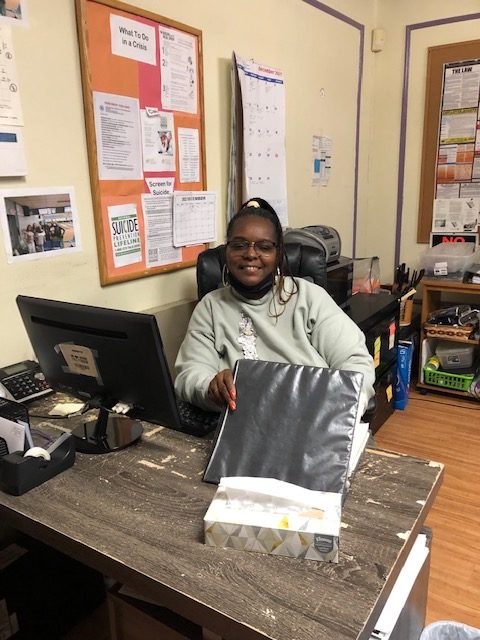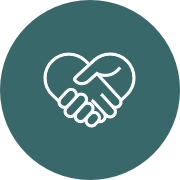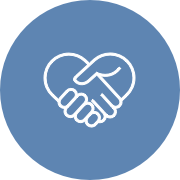Get to Know DSP Estelle Briggs of RHD Womanspace Ardmore

December 15, 2021
32 years ago, Estelle Briggs stopped using drugs and rebuilt her life with the help of RHD Family House Norristown.
“My daughter was my inspiration. My son was with me when I was in recovery, but my daughter was not. My determination was not to let her down and not to give her up. She was the reason I stopped getting high,” Briggs said.
Since 1982, RHD Family House Norristown has operated as a long-term residential treatment facility for chemically-dependent women and their children. Family House is one of only a handful of programs in the country that work with mother and child together in a residential treatment setting.
Briggs continued, “I am so grateful for the program and to all of the staff of Family House – they saved my life.”
After graduating from Family House Norristown in 1989, Briggs worked as a volunteer there for five months, before becoming an overnight ADL (Activities of Daily Living) counselor in 1992 – a turning point in her life – as it was at this time when she discovered her life’s mission to support individuals in their battle to recover from drug addiction.
Since 2004, Briggs has been fulfilling her mission at RHD Womanspace Ardmore, a residential treatment program for chemically dependent women, once again as an overnight ADL counselor. Briggs serves a critical part of the participant’s sobriety journey, providing them guidance and helping them through challenges as they recover from addiction.
“At Womanspace, I teach the ladies that the same things you deal with before you started using, are the same things you’re going to face when you stop using. When we get high, we can ignore those things. But once out of recovery, you’re going to face these things; the good and the bad. I’ve been in their shoes – I am an example that recovery takes work.”
One of the women Briggs counseled at Family House was Sheila Hall-Prioleau. Prioleau graduated from Family House in 2003. Following graduation, like Briggs, she also found work there as an office manager. Prioleau went back to school, eventually receiving a Master’s degree in 2016 in administration. Prioleau’s career at various RHD programs flourished. She became the program director at RHD’s United Peers when the program was first established and is now the program director for RHD’s Creating Increased Connections.
Briggs belief in Prioleau played a key role in her accomplishments, “18 years ago when I was in treatment, she was the person that always said that after 20 years of using, that I could still get clean and have a better life for me and my children. She believed in me when I didn’t believe in myself,” Prioleau said.
Briggs credits all of the women she’s supported over the years as a factor in her own addiction recovery, “Recovery doesn’t stop just because I’ve been 32 years clean. I will be an addict for the rest of my life but I can say, I’m a recovering addict. Each woman that comes into my life lets me know that drugs are still out there and powerful. Every woman that walks into this house reminds me of why I keep striving and why I’m helping these women.”
“This work is a passion of mine and it helps me stay on track in my own recovery. Even if the women struggle and relapse, I’m here for them – they can come back at any time and I’ll be there for them. I don’t want them to give up because I’m not giving up on them.”
She concluded, “Womanspace feels like home. It’s where I need to be and it’s probably where I’ll stay until it closes down! I’ll be doing this work for the rest of my life.”
As for the daughter who inspired Briggs to get sober more than three decades ago, their relationship couldn’t be better, “I live with my daughter now. I made my amends and our relationship is beautiful.”
For more information on RHD Womanspace, please click here: https://www.rhd.org/program/womanspace-philadelphia/


